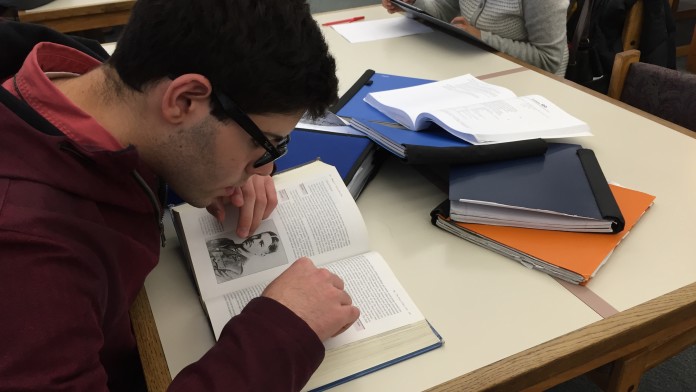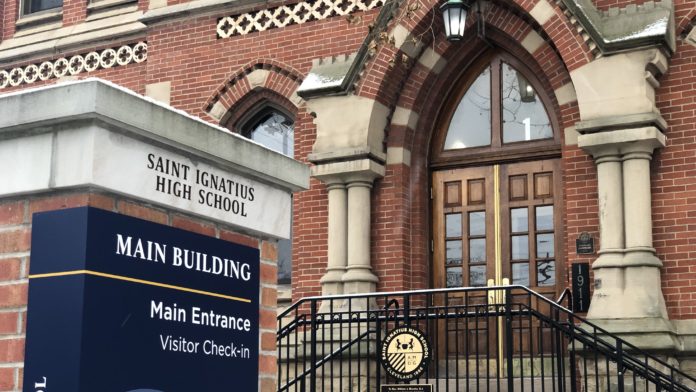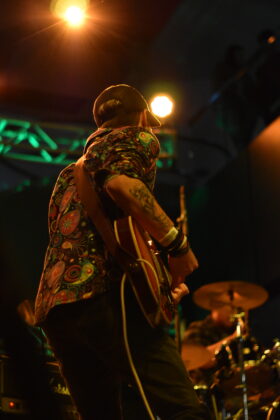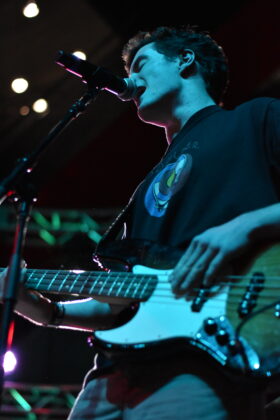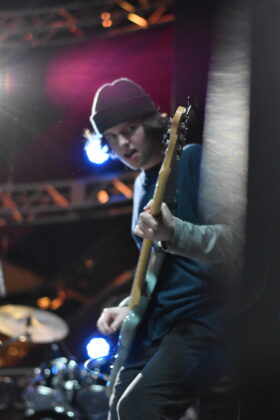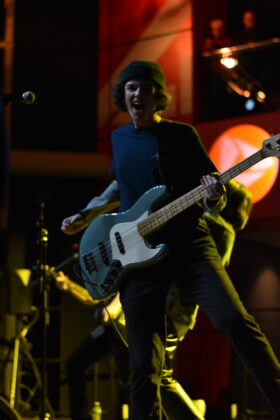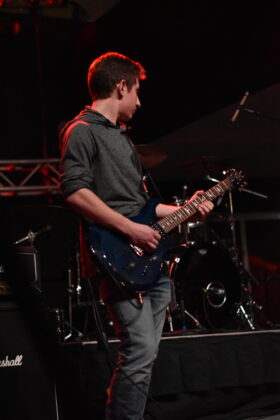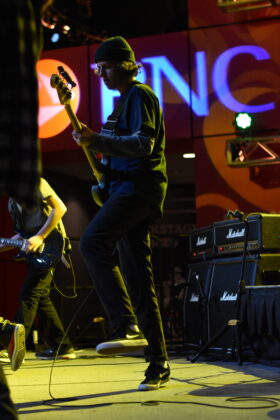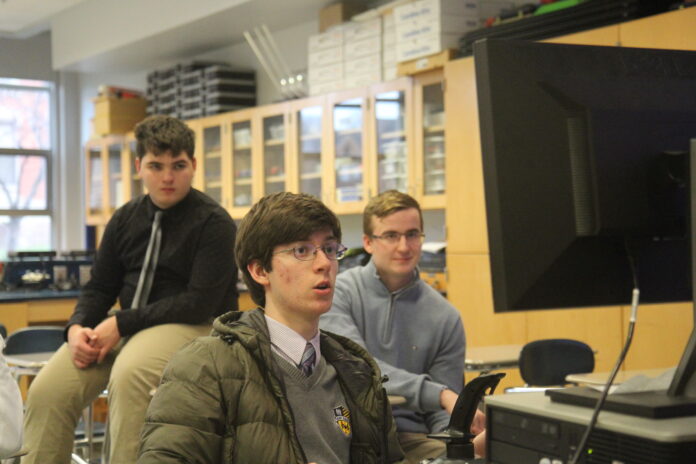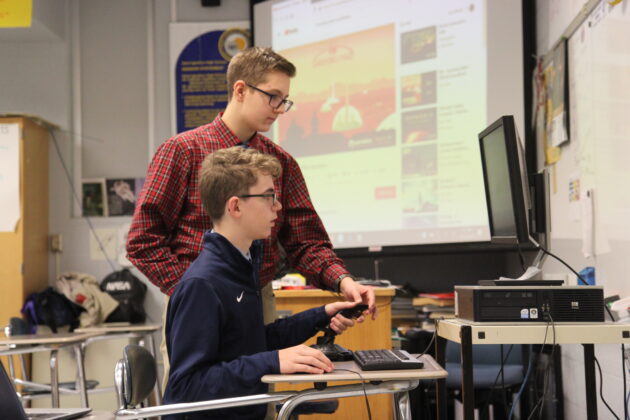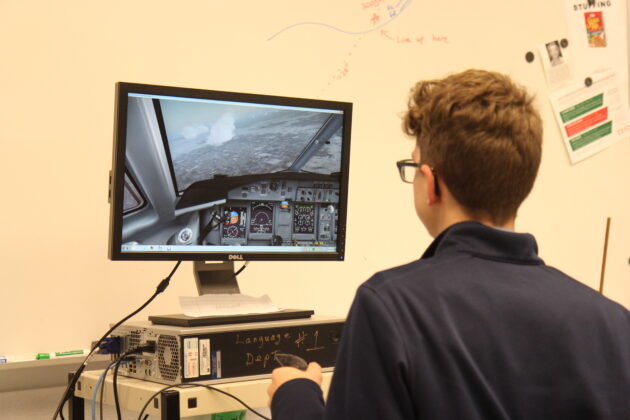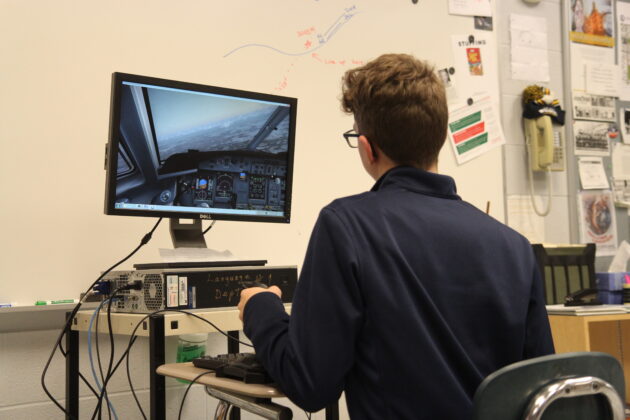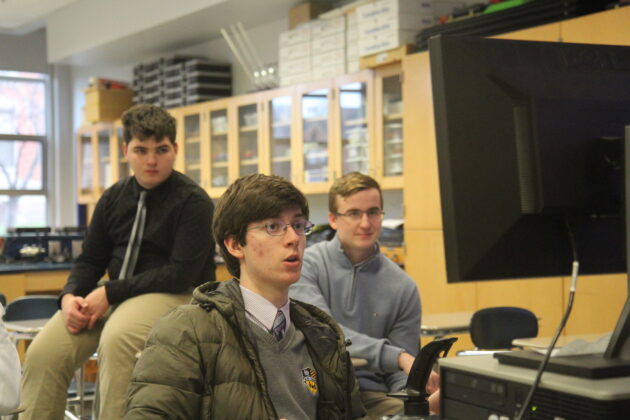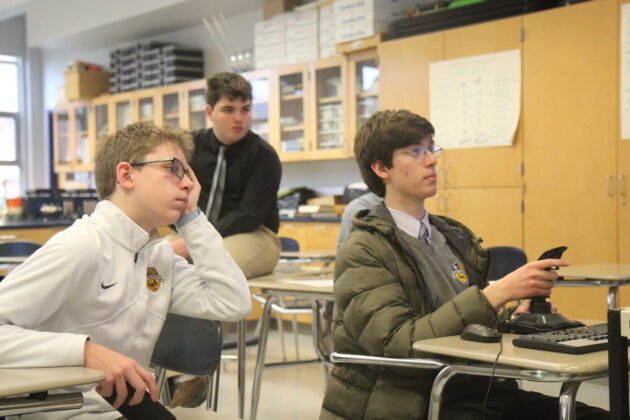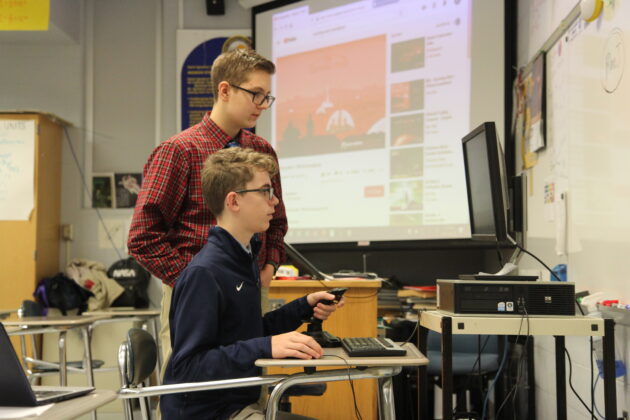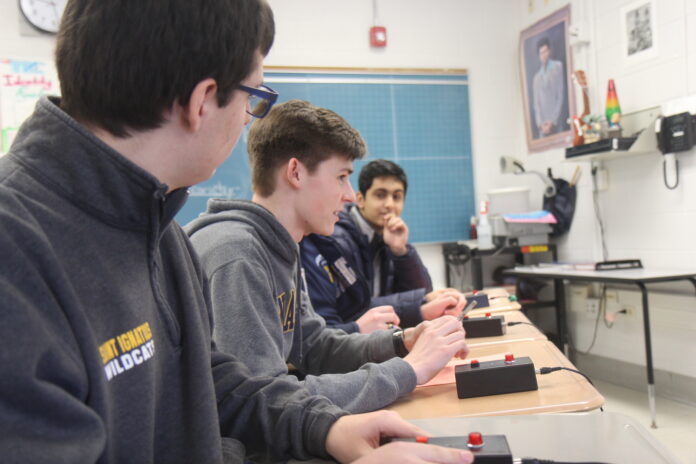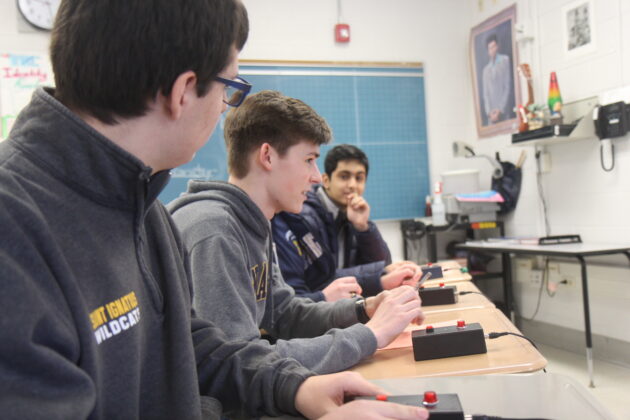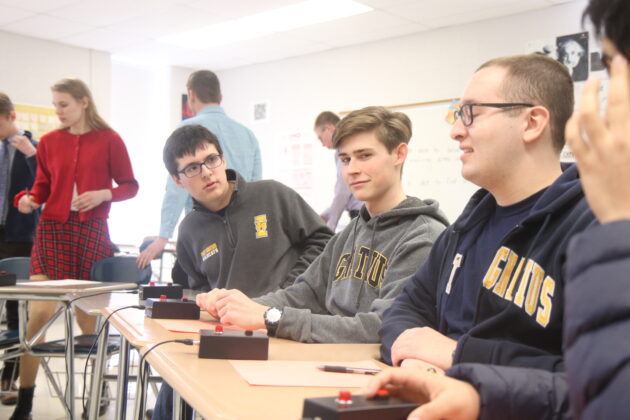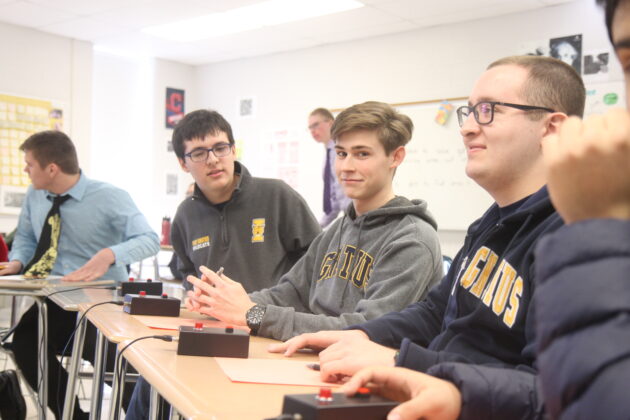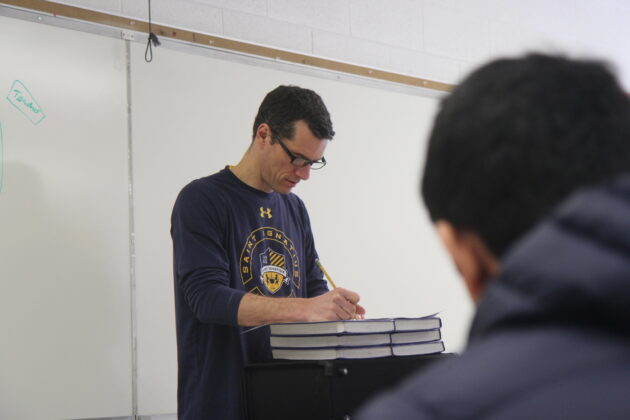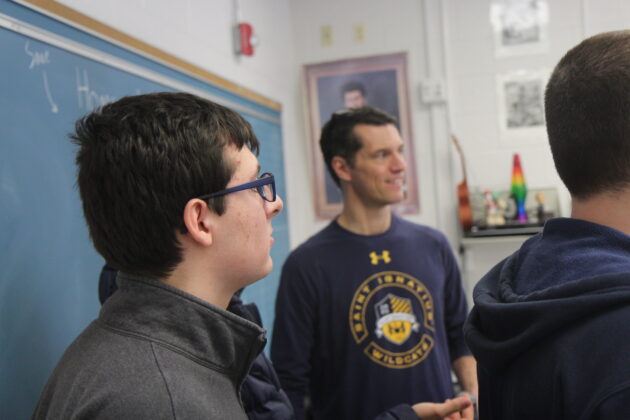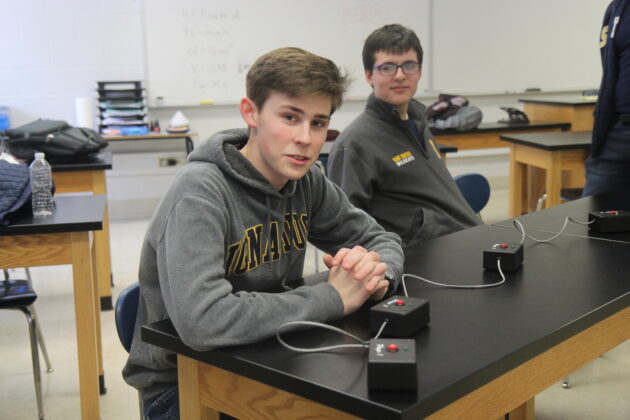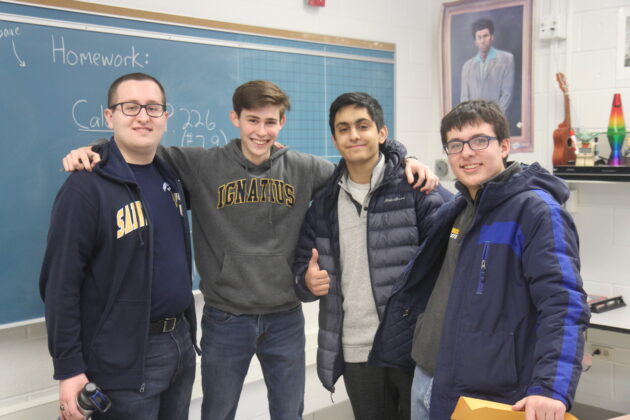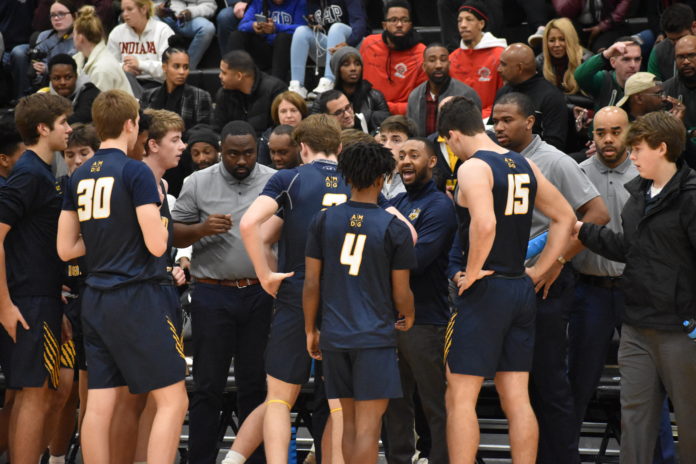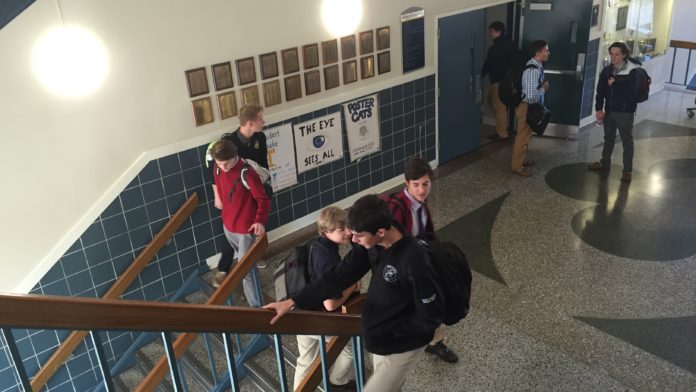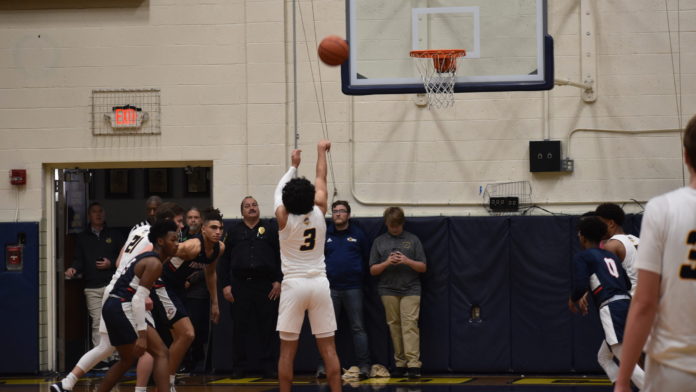By Connor Geary ’21
In recent news, the problem of homework has gained special attention in our community. Students suffer sleep deprivation and unnecessary stress that is caused by incredible amounts of homework and studying for tests and quizzes. Even though procrastination can be a significant influence in sleep deprivation, large amounts of homework given each night are not as beneficial to students as one may think. However, Saint Ignatius students are often too timid to express this concern of home-work and have awaited this one special day that will forever be remembered.
On January 29, 2020, Rev. Shelton, S.J. gave an impassioned speech that got the attention of over 1,400 students in the Fr. Sullivan Gymnasium. “And that is why I am taking a pledge for no homework,” Fr. Shelton remarks. After hearing this, the question that was immediately provoked by over 1,400 students present was “Is. Fr. Shelton serious?”
In 2015, a smaller New York University study conducted on a study about the effects of too much homework. It focused more broadly on how students at elite private high schools cope with the combined pressures of school work, college applications, extracurricular activities, and parents’ expectations.
That study, which appeared in Frontiers in Psychology, noted serious health effects for high schoolers, such as chronic stress, emotional exhaustion, and alcohol and drug use. The research involved a series of interviews with students, teachers, and administrators, as well as a survey of a total of 128 juniors from two private high schools.
About half of the students said they received at least three hours of homework per night. They also faced pressure to take college-level classes and excel in activities outside of school.
Many students felt they were being asked to work as hard as adults, and noted that their workload seemed inappropriate for their development level. They reported having little time for relaxing or creative activities. More than two-thirds of students said they used alcohol and drugs, primarily marijuana, to cope with stress. The researchers expressed concern that students at high-pressure high schools can get burned out before they even get to college. “School, homework, extracurricular activities, sleep, repeat — that’s what it can be for some of these students,” said Noelle Leonard, PhD, a senior research scientist at the New York University College of Nursing, and lead study author, in a press release.
Too much homework can result in lack of sleep, headaches, exhaustion, and weight loss. However, the real problem is can schools completely eliminate homework? Despite popular belief, eliminating, or severely reducing homework is possible.
If homework is eliminated, students can return home each day and focus on their family, sports, health, and well-being. Students need and deserve these breaks because once they return to school after a deep sleep of 8+ hours, they will feel refreshed causing their attention to be significantly improved. However, this is not the reality in today’s world, because a significant amount of students suffer sleep deprivation after staying up past midnight due to homework.
Students are very involved outside of school. With extracurriculars, sports, jobs, and family matters, it is often challenging to balance the needs outside of school with the needs inside of school – home-work. Also, with Honors and AP classes, students become
easily stressed with their workloads. According to the Princeton Review, who conducted a Student Life in America survey, over 50% of students reported feeling stressed. In order to resolve this issue, schools need to reconsider homework levels.
However, with Fr. Shelton’s, speech, students view home-work as just “something that needs to get done without actually learning and going indepth with the material due to how much homework each student receives on a daily basis.” Homework does not have to be completely eliminated, however, it needs to be significantly reduced so students can actually learn the material without being stressed. Due to the large amount of homework given, students have learned to cope with school and just try to get the A without learning the material.
In accordance with some interpretations of the speech given by Fr. Shelton’s speech, schools needs to reconsider how much homework each student is given and determine how much learning they want students to experience.


